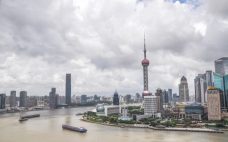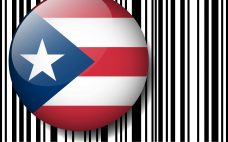Rubius Therapeutics will use some of the US$241 million (‚ā¨207 million) raised in its initial public offering (IPO) to buy and refurbish a manufacturing facility. The biotech firm begins trading on Nasdaq Global Select Market today (July 18) after raising $241 million from the public offering of 10,483,000 shares of common stock. According to the firm‚Äôs Form S-1, filed with the SEC, some of the proceeds will be used to ‚Äúpurchase, renovate and customize the manufacturing facility for which we…

Global Markets
Shanghai Filling Line is Latest Investment in China for B-I
Boehringer-Ingelheim will offer both drug substance and drug product services form its facility in Shanghai, China after adding fill & finish capabilities. German drugmaker Boehringer Ingelheim has added a new filling line at its commercial biomanufacturing facility in Shanghai, bolstering its third-party business, BioXcellence. ‚ÄúAt our China facility the F&F [fill & finish] service complements the manufacturing service for drug substance at that site, meaning we can now offer drug substance and drug product out of one facility for our…
Still Space for Multiple Neulasta Biosimilars, says Pfenex
Pfenex has deprioritized its pegfilgrastim biosimilar program but is reevaluating the market after Mylan‚Äôs recent success in the US. In June, the US Food and Drug Administration approved Mylan‚Äôs Fulphilia on its second attempt. While Fulphilia has become the first biosimilar of Amgen‚Äôs cancer drug Neulasta (pegfilgrastim), there are several other firms looking to tap the market, including Coherus and Novartis subsidiary Sandoz. Clinical-stage development and licensing biotech Pfenex too has a pegfilgrastim biosimilar in its pipeline, PF529, but announced…
Brexit and Tax Rates Stoking Ireland’s Biopharma Sector
With the UK leaving the European Union and the US cutting its corporate tax rates, the changing business landscape holds both opportunities and challenges for Ireland‚Äôs life sciences sector. For decades, Ireland has cemented itself as a major pharma and biopharma manufacturing hub, spurred by low corporate tax rates, and a highly skilled workforce. Its language, proximity to Europe and its membership of the common market have also boosted multinational investment. On the other side of the Irish Sea, the…
Therapy First, Efficiency Second: Why We Should Stop Focusing on Manufacturing Costs
Drug substance manufacturing only contributes around 5% on average to the total cost of a biologic says GE Healthcare‚Äôs Guenter Jagschies. Payors, patients and governments are increasingly looking to industry to justify the high prices of prescription drugs. As new immuno-oncology treatments are being launched with increasingly higher price tags and often the cost of producing these complex biotherapeutics. ‚ÄúThis industry is not pricing based on cost, it is pricing based on perceived value,‚ÄĚ Guenter Jagschies, senior director of strategic…
Hyperstack Shortage Caused by Gene Therapy Surge
The adoption of viral vector technology in cell and gene therapy has led to six month waiting lists for multilayer culture vessels. Hyperstack vendor Corning says it will more than double its manufacturing capacity to deal with the demand. Despite being a registered brand owned by Corning Life Sciences, ‚Äėhyperstack‚Äô has become a common term to describe multilayer, scalable, and single-use culture flasks. They are used to produce viral vectors and gene therapies, and are in huge demand, according to…
Humira Biosimilars: Amgen Lawsuit ‚ÄėStake in the Ground‚Äô for Others
Amgen will challenge AbbVie‚Äôs bestseller Humira in the US from 2023, following a lawsuit settled last year. Other adalimumab developers are likely to receive the same deal, an IP lawyer says. In September 2017, Amgen and AbbVie reached a settlement resolving all pending litigation in relation to the former‚Äôs Amjevita, a biosimilar version of the latter‚Äôs top-selling monoclonal antibody Humira (adalimumab). Amjevita became the third biosimilar to approved by the US Food and Drug Administration (FDA) in September 2016, but…
Industry Looks to ‚ÄėLucrative‚Äô Opportunities for Off-the-Shelf Cell Therapies
Allogeneic cell therapies have greater commercial potential than autologous products, an industry survey finds. Respondents also believe there are a lack of third-party capabilities to make these new therapies. When Novartis‚Äôs Kymriah (tisagenlecleucel) received the regulatory thumbs up in August 2017, US Food and Drug Administration (FDA) Commissioner Scott Gottlieb described regenerative medicines as being ‚Äúno longer the stuff of science fiction.‚ÄĚ The approval of Gilead/Kite‚Äôs Yescarta (axicabtagene ciloleucel) weeks later helped cement the safety and commercial potential of CAR-T…
Sartorius Pumps $100m in Puerto Rico, Doubles SU Bag and Filter Capacity
North American demand for aseptic filters and single-use bags drove Sartorius to expand its facility in Yauco, Puerto Rico. German bioprocessing supplier Sartorius began expanding its Yauco production and distribution center in 2016 and has invested more than US$100 million (‚ā¨86 million), according to spokesperson Timo Lindemann. The investment brings Sartorius an additional area covering nearly 190,000 square meters ‚Äď around two million square feet ‚Äď he told BioProcess Insider. ‚ÄúA focal area of investment will be on expanding aseptic…
Patheon On Keeping Up With Biologics Demand
Patheon is doubling its biomanufacturing capacity through a $50 million¬†investment in Missouri. We spoke with the CDMO about the continued demand for biologics services and its relationship with owner Thermo Fisher. In April, contract development and manufacturing organization (CDMO) Patheon announced plans to add 16,000 L of single-use capacity at its St Louis, Missouri facility. The US$50 million (‚ā¨43 million) expansion effectively doubles the firm‚Äôs global biomanufacturing capacity. According to David Kenyon, senior director of Global Scientific and Technical…










